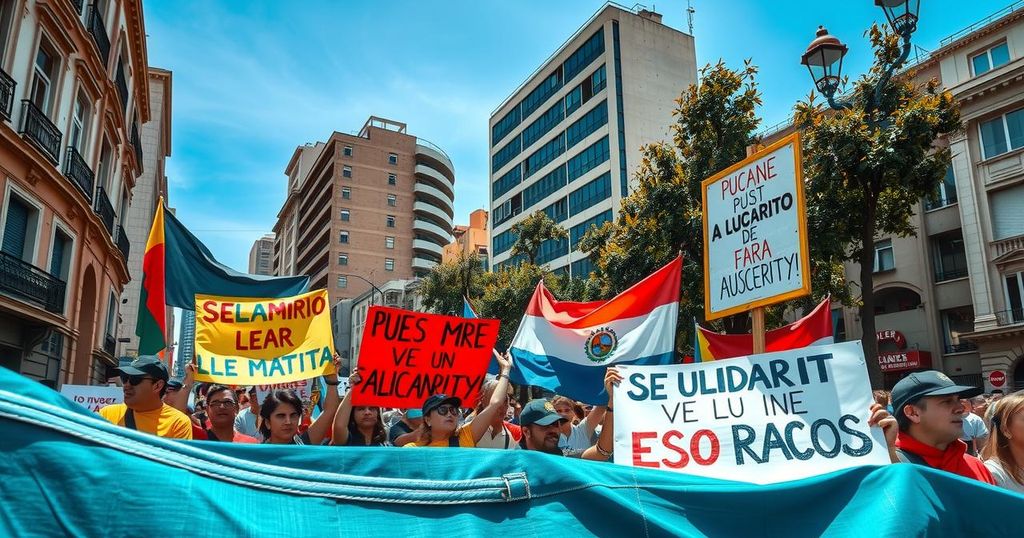Argentina Prepares for Strike Amid Economic Turmoil and IMF Loan Anticipation

Argentina is set for a 24-hour general strike in response to anti-austerity protests as it awaits an IMF loan. President Javier Milei’s austerity policies have caused significant social strife despite some economic successes, leading to protests from labor unions and retirees. The IMF has reached a preliminary loan agreement, with final approval expected soon.
Argentina is poised for a 24-hour general strike following widespread anti-austerity protests as the nation awaits news about a new loan from the International Monetary Fund (IMF). The strike is scheduled to begin at midnight and marks the third general strike during President Javier Milei’s 16-month presidency, with unions mobilizing against his described “chainsaw” austerity policies.
President Milei has implemented significant cuts in social spending and public sector jobs, famously using a chainsaw as a campaign symbol for these austerity measures. His actions have led to reduced inflation and achieved the first budget surplus in over a decade, yet they have also plunged the country into recession, pushing millions further into poverty during his administration.
Hector Daer, secretary general of the CGT labor movement, emphasized that the true cost of austerity for vulnerable populations is far greater than what the monthly inflation figures suggest. The upcoming strike is anticipated to severely disrupt transportation services, including trains and flights, as well as close schools and banks. National carrier Aerolineas Argentinas has already canceled numerous flights affecting around 20,000 travelers.
Despite the high annual inflation rate in Argentina, which peaked at 211 percent in 2023, Milei’s policies have reportedly reduced it to 66 percent. However, unions argue that these positive economic statistics do not reflect the decreasing purchasing power of ordinary citizens. In support of their grievances, pensioners held a protest in Buenos Aires, highlighting their struggles amidst ongoing austerity measures.
Carlos Salas, a civil servant, expressed his frustrations during the protest, stating, “I have had enough of this government!” His sentiments reflect widespread discontent as the nation awaits confirmation of a $20 billion loan from the IMF. President Milei claims that securing this funding will allow his government to manage debts and combat inflation, a critical endeavor ahead of the mid-term elections, aimed at enhancing his party’s influence in Congress.
Argentina’s existing debt to the IMF stands at $44 billion, and the organization recently stated that a preliminary loan agreement has been reached. Final approval from the IMF’s executive board is expected in the coming days, which could have significant implications for Argentina’s economic landscape.
In summary, Argentina is preparing for a significant general strike in response to President Javier Milei’s austerity measures, which have resulted in both economic achievements and widespread hardship. While inflation has decreased and a budget surplus has been achieved, many citizens feel the burden of these policies in their daily lives. The forthcoming IMF loan carries hopes for economic stability, yet substantial challenges remain as public dissatisfaction continues to grow.
Original Source: www.myleaderpaper.com








